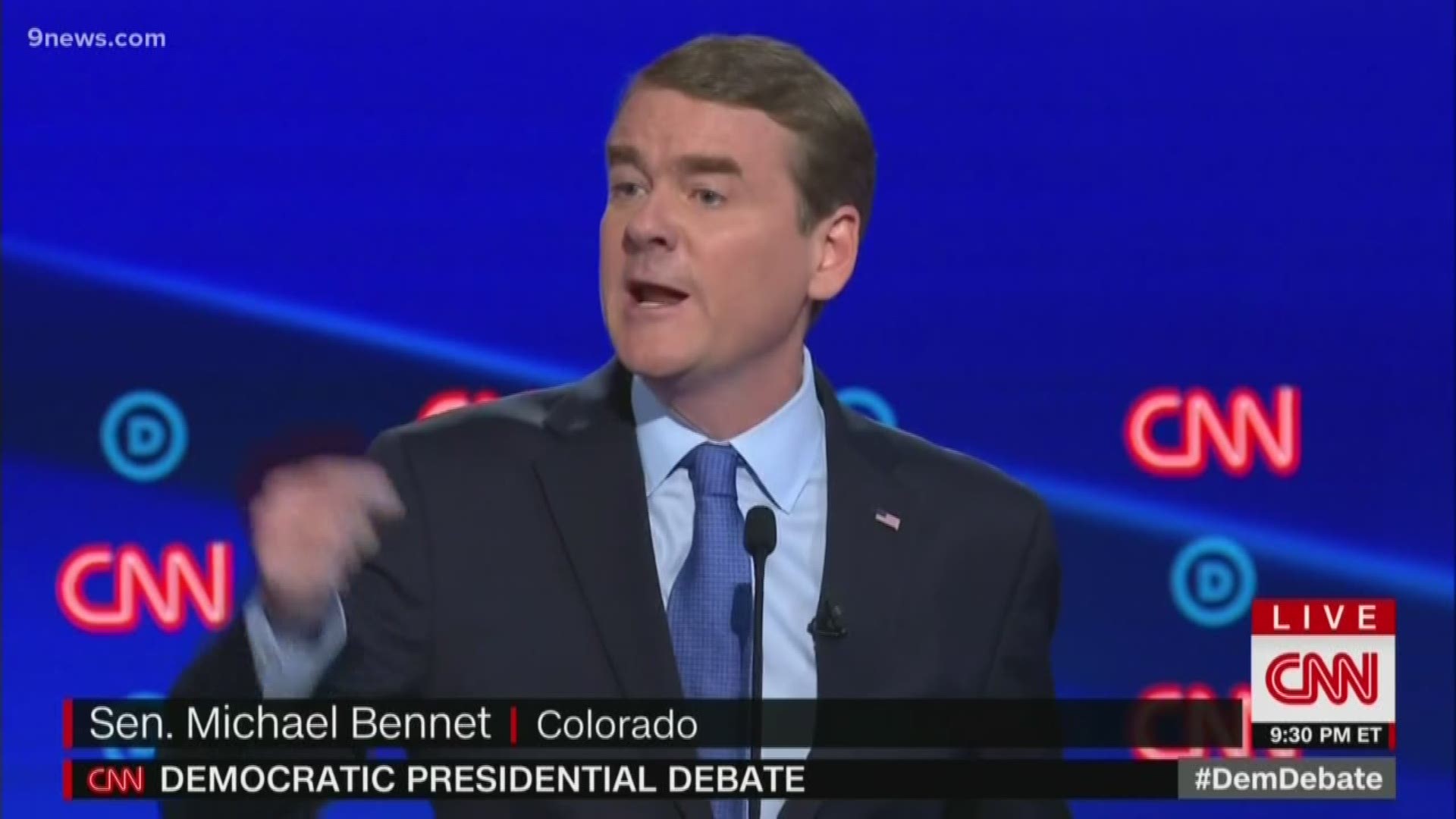DENVER — CNN’s second Democratic debate focused heavily on former Vice President Joe Biden and California Sen. Kamala Harris, but Colorado’s Senator, Michael Bennet, did manage to make his voice heard in moments.
By the end of the first hour, Bennet actually had the third-most talking time of any candidate – much of that time spent knocking the Harris-backed Medicare for All and slamming the idea of taking away employer-based insurance.
RELATED: The internet could not believe what one candidate said would be the first thing she did as president
RELATED: Biden tells Harris to ‘go easy on me, kid’ in second night of Democratic presidential debates
"It doesn't make sense for us to take away insurance from half the people in this room and put huge taxes on almost everybody in this room, when we can pass a public option, trust the American people to make the right decision and have universal health care in this country in two years and not 10 years,” he said.
“We need to be honest about what’s in this plan. It bans employer-based insurance and taxes the middle class to the tune of $30 trillion. Do you know how much that is? That is 70 percent of what the government will collect in taxes over the next 10 years.”
Vermont Sen. Bernie Sanders makes those cost claims, Bennet said.
Harris responded by saying Bennet was pushing Republican talking points, and New York Mayor Bill de Blasio called his comments “fearmongering.”
Bennet also earned applause when the conversation turned to school segregation. As Biden and Harris revisited their clash from the first round of debates, he spoke up.
"We need a conversation about what's happening now, and when there's a group of kids in this country that don't get preschool through no fault of their own and another group does, equal is not equal. And we've got a group of K-12 schools that are good because families can spend a million bucks, and you've got the Detroit Public Schools that are as segregated as they were, equal is not equal,” he said, but did not expand on what he’d do as President.
On immigration, Bennet said he doesn’t support decriminalizing the border but he does want change.
“There's not a single person on this stage, if we were President, would ever separate a child from their parents at the border. They have turned our border into a symbol of nativist hostility," he said.
Bennet went back to a plan that he worked on as members of the “gang of eight.” The 2013 immigration bill proposed $46 billion for border security and a path to citizenship for people in the U.S. illegally. The bill didn’t move beyond the House of Representatives.
Inevitably, Bennet and former Colorado Gov. John Hickenlooper will look to what's next in their presidential campaigns.
The criteria to qualify for the third round of Democratic presidential debates will knock several candidates off the stage.
Twenty candidates took part in the second presidential debates hosted by the Democratic National Committee and CNN. NBC hosted the first.
To qualify for the first two rounds, candidates needed to prove one of the following:
- 65,000 unique donors
- 200 donors from 20 or more states
- 1% or higher in three polls
Both Colorado candidates, Hickenlooper and Bennet, qualified with by polling at 1% or higher in three polls.
To qualify for the September debate in Houston, hosted by the DNC and ABC, candidates must meet all of the following:
- 130,000 unique donors
- 400 donors from 20 or more states
- 2% or higher in four polls
Neither Hickenlooper nor Bennet are close to the 130,000 unique donors.
A search of the Federal Election Commission contribution data shows Hickenlooper with 1,981 unique donors, but his campaign spokesman reports that they have received 14,000 and that some are low enough in dollar amount that they don't appear on the database.
Just because a candidate doesn't have enough donors or high enough poll numbers, doesn't mean they have to stop running for President, it just prevents them from being on the next debate stage.

